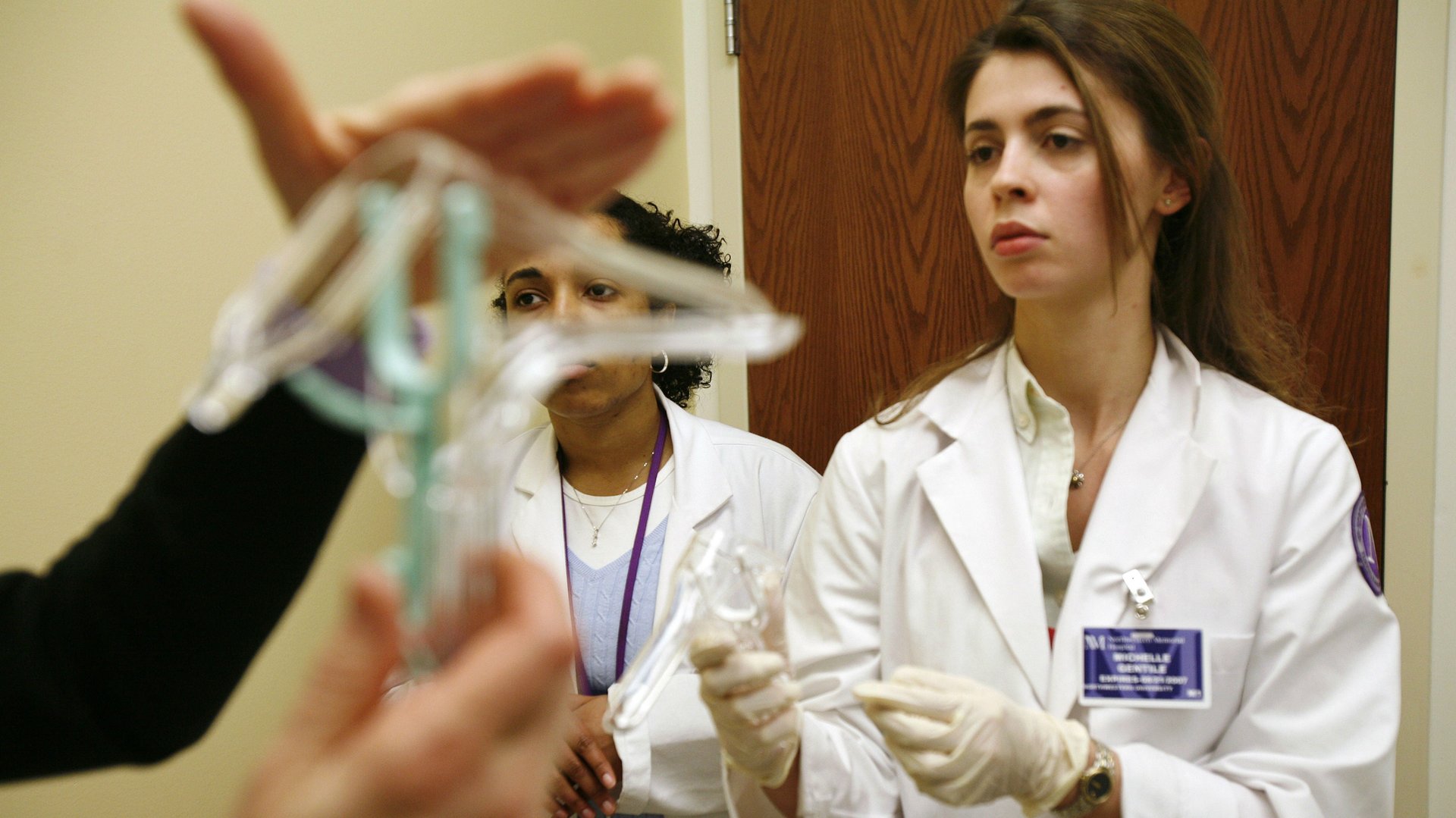Doctors don’t know whether women really need those awkward pelvic exams
While no medical exams are enjoyable, female pelvic exams are among the most awkward.


While no medical exams are enjoyable, female pelvic exams are among the most awkward.
Typically done at an annual physical or gynecological visit, the procedure requires the patient to lie back with her knees open or feet in stirrups while doctors use a speculum (kind of like a car jack for vaginas) to check on aspects of her reproductive health. The exam can check for STIs, ovarian cysts, and early stages of cervical cancer.
For some women, though, the exams may not be necessary. On Tuesday (June 28), medical professionals from the US Preventative Task Force (USPTF) conducted a major review of the existing scientific literature and found inconclusive evidence that pelvic exams are helpful for women who aren’t pregnant or don’t show unusual symptoms, like unexpected bleeding or discharge.
“There is no direct evidence on the overall benefits and harms of the pelvic examination as a one-time or periodic screening test,” the authors write (pdf, p. 4).
There aren’t preventative treatments available for many of the conditions pelvic exams screen for such as some STIs or ovarian cysts. “You want to find things before they cause symptoms only if you have treatments that will keep full-blown symptoms from appearing,” Amir Qaseem, the vice president of clinical policy at the American College of Physicians, told STAT. “We don’t have those for the conditions pelvic exams find.” It’s easier to treat conditions pelvic exams are meant to detect once they appear.
Pelvic exams are notorious for giving inconclusive results; they have been known to yield both false-positives and false-negatives, giving women unclear and potentially risky pictures of their health.
The American Congress of Obstetricians and Gynecologists (ACOG), another professional medical association, still recommends that all women over 21 receive annual pelvic exams, according to a statement. They are reviewing the USPTF report, which is available for comment until July 25, 2016.
The authors of the USPFT report note that even though there’s no evidence of benefits from pelvic exams in healthy patients, it doesn’t mean there aren’t any. There isn’t sufficient proof that they’re harmful, either. The finding is reminiscent of the International Agency for Research on Cancer’s ruling on whether a number of substances are carcinogenic, or whether or not standing desks are good for you. There simply isn’t enough good evidence.
The task force still recommends that all women over 21 should seek cervical cancer screening through a pap-smear at least every three years. ACOG recommends that women who are healthy should visit their gynecologist every year even when they’re well as part of their preventative care.